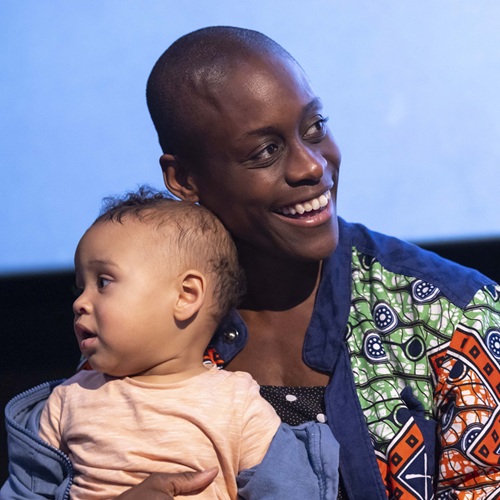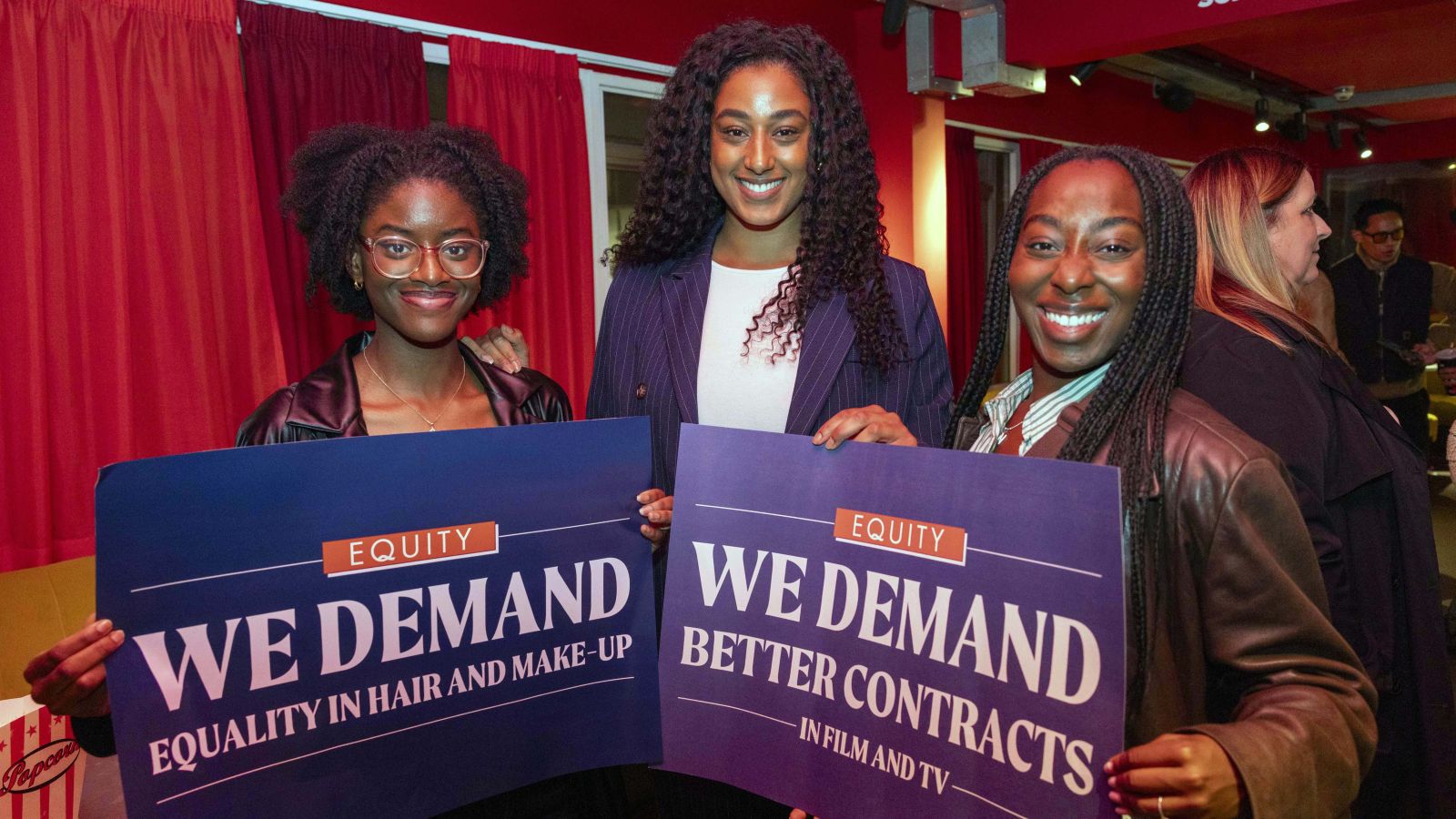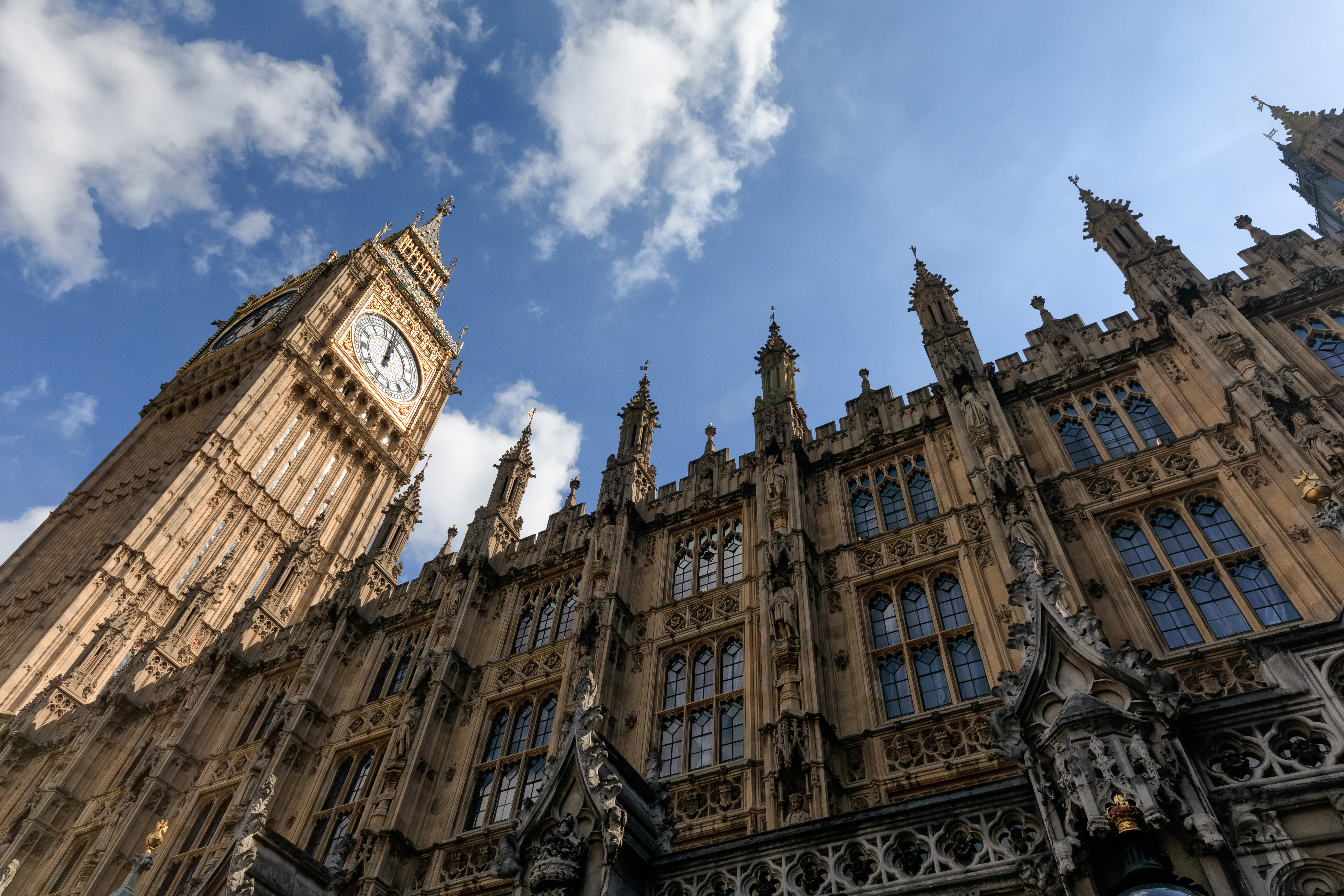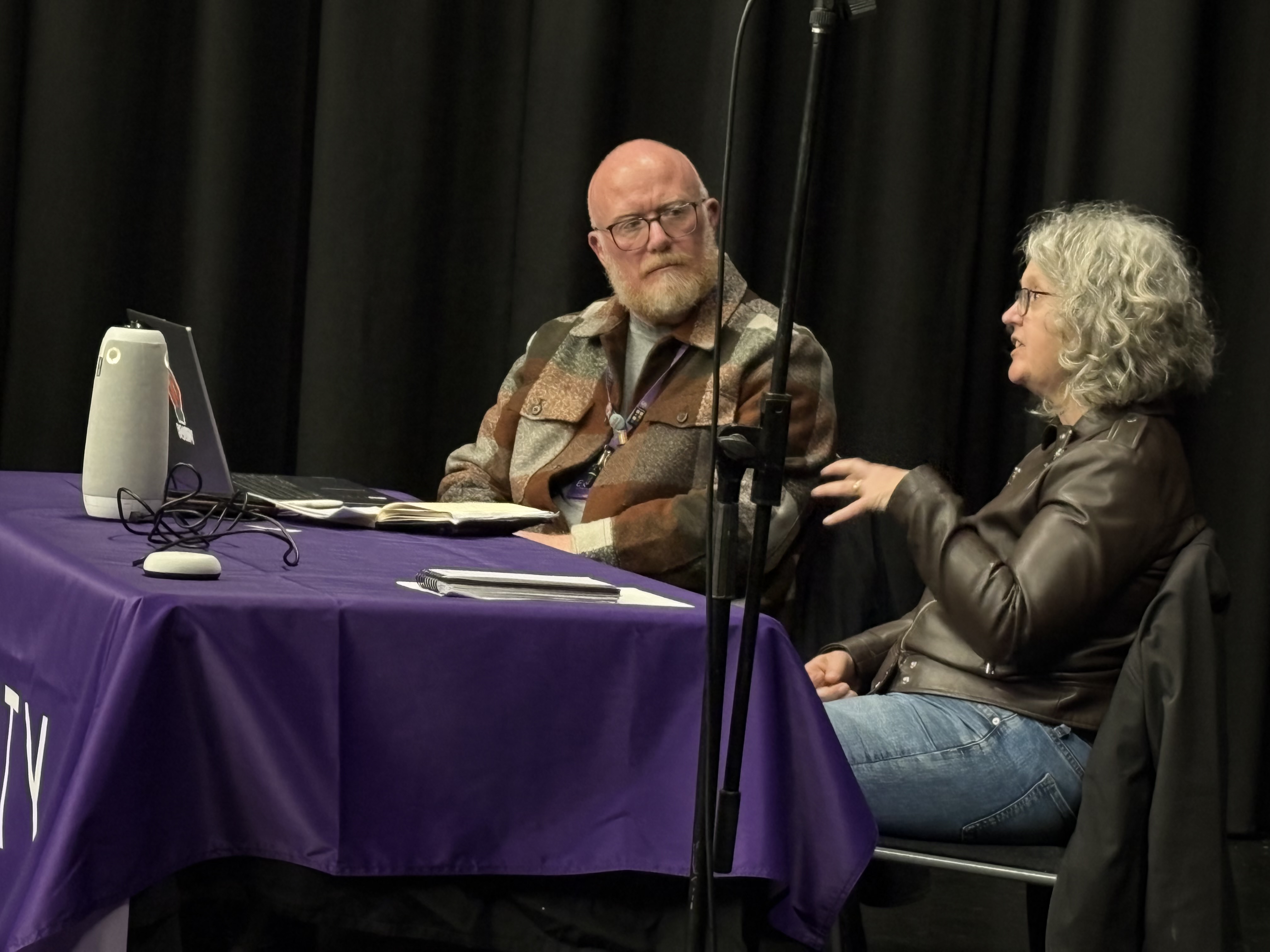Singed, burnt and broken hair, hair falling out after mystery products applied, personal time and money spent to resolve production failings – the many experiences of Black performers were centre stage on Monday evening, 15 September, with Equity saying “it’s discrimination, and it’s about your rights”.
The awkward, unpleasant and at times shocking stories – “all of my hair fell out” – told in Fola Evans-Akingbola and Jordan Pitt’s documentary Untold Stories: Hair on Set, demonstrate the unacceptable workplace challenges faced by Black performers in the UK entertainment industry. It’s also the reason why the issue is firmly in Equity’s demands for an improved collective agreement with PACT, covering the majority of UK film and TV productions, and will feature in upcoming claims for changes to the union’s theatre agreements.
The film shows that change is possible – with actors sharing positive stories of stylists and productions that are leading the way in this area – if the industry steps up.
For any actor it’s hard to get work, we don’t want to be difficult, we’re grateful to be here. But I think as actors, we need more strength in who we are and that we have rights. As actors we should stand up and be less grateful.
Ann Ogbomo
“It felt like the price I had to pay for being black”
The stories weren’t new to the assembled audience at Shoreditch’s Rich Mix cinema. During the film screening, the audience laughed along in recognition of the shared make-up trailer experiences and several shouted out “oh yes”, “so true” or “shame” in solidarity with the actors sharing their stories in the documentary.
Equity member Fola Evans-Akingbola said in the post-screening panel discussion that she made the film “so that the next generation don’t have all these hair trauma stories.” Fola has appeared in a string of TV and film titles, including Death in Paradise, Game of Thrones, Siren and Netflix’s The Night Agent. She found that her experience as a mixed-heritage actor with curly afro hair was far from unique, and set out to shine a light on the challenges faced by her fellow performers.
Among the many stories, was Naomi Ackie, who recounted a production in which she said “they would straighten my hair two to three times a day, so by the end of that job my hair was broken. It felt like the price I had to pay for being black.”
Others spoke about seeing White colleagues spending time learning lines, while they were having to coach the hair and make-up team and reassure them, taking up emotional and physical energy and essentially doing two jobs. “We just want to do our jobs well without having to do two jobs; I don’t want to be a hair stylist,” said another actress.
Don’t want to be seen as difficult
Actors spoke about the fear of rocking the boat, of being seen as difficult. Actress Antonia Thomas explained “I don’t want to make a fuss, I don’t want to be the difficult brown girl.” This fear of being seen as difficult was echoed by many in both the film and the post-screening discussion.
In the film, actress Naomie Harris says: “you shouldn’t have to worry about hair and make-up, there’s already enough to worry about – the last thing you want to be worrying about is your hair!” This sentiment was reinforced by actress Nahel Tzegai, whose comment closed the film, saying “I just want to live in a world where I can just turn up and do my job. Can you imagine?! One day.”
Stage and screen actress Ann Ogbomo featured in the film, was a panellist at the event, and has gone on to co-found of Hair and Make-Up Equality Now. Ann is an integral member of Equity’s negotiating team, advising specifically on the demand around Global Majority hair and make-up provision. “If we come together in the union we can solve so many things,” she said. “For any actor it’s hard to get work, we don’t want to be difficult, we’re grateful to be here. But I think as actors, we need more strength in who we are and that we have rights. As actors we should stand up and be less grateful.”
Provision poor in live theatre
While Equity is seeking strengthened contractual provisions for tv and film performers through PACT negotiations, the situation is also bad in live theatre.

Etisyai Philip (Tish, pictured), Equity Stage Committee member, revealed that a recent consultation with members shows “the provision still isn’t there, and it’s woefully inadequate when it is there.” This will feed into the claims for the upcoming West End, Commercial and Subsidised theatre agreements with Tish – herself an experienced stage actress - explaining “we want to stop the onus being on the individual – the responsibility is on our employers, it’s the accountability.”
It doesn’t have to be like this
The film brings hope that things can improve. Actress Naomie Harris recounted the positive experience of working on two of the Pirates of the Caribbean films in which she played the character Tia Dalma/Calypso. The hair and make-up team were skilled and worked with her to create the look; “hair is an important part of telling the story of that character” she said.
Good experiences were described as “game changing” by other actors when they had the fortune to work with experienced stylists who could help to craft and portray the look for characters, whether in sci-fi productions, or for office professionals in TV dramas. Kevin Fortune and Nora Robertson stood out as leading hair and make-up professionals for Black performers, both featuring in the film and advocating the need for better training and skills across the industry.
Hosting the post-screening panel discussion and audience Q&A, Equity Screen Committee member Enyi Okoronkwo said, “I find this film such an amazing piece of collective activism. It’s part of the union.”
Equity’s Head of Film and TV, Cathy Sweet, explained: “It’s a huge priority for us as a trade union to get the best possible provisions in our collective agreements which underpin the contractual provisions for all producers. It has to be clear – there is no get out – producers must provide the best provision for all artists.”
While all panellists urged any non-members to join Equity, Enyi set the context, saying “hair and make-up on set is a trade union issue”
“Please come to us as your trade union” urged Cathy. “This is a collective issue, it’s about your rights, it is discrimination, and we are here to enforce your rights when you are in your workplace.”
From guidance, contract clauses, legal support and industrial negotiations, Equity is challenging poor practice and making a difference for members across the industry.
Fola closed the session in an upbeat mood, saying: “I am very hopeful. The industry is ready for this change I think.”

Find out more about our PACT negotiations and why we're Demanding Better in film and TV.
Hair & Make-Up Equality: Know your rights
What you can do to protect yourself and advance hair and make-up equality through your trade union.
PACT - Demand Better in film and TV
Join our campaign to demand better in negotiations with PACT (Producers Alliance for Cinema and Television)




